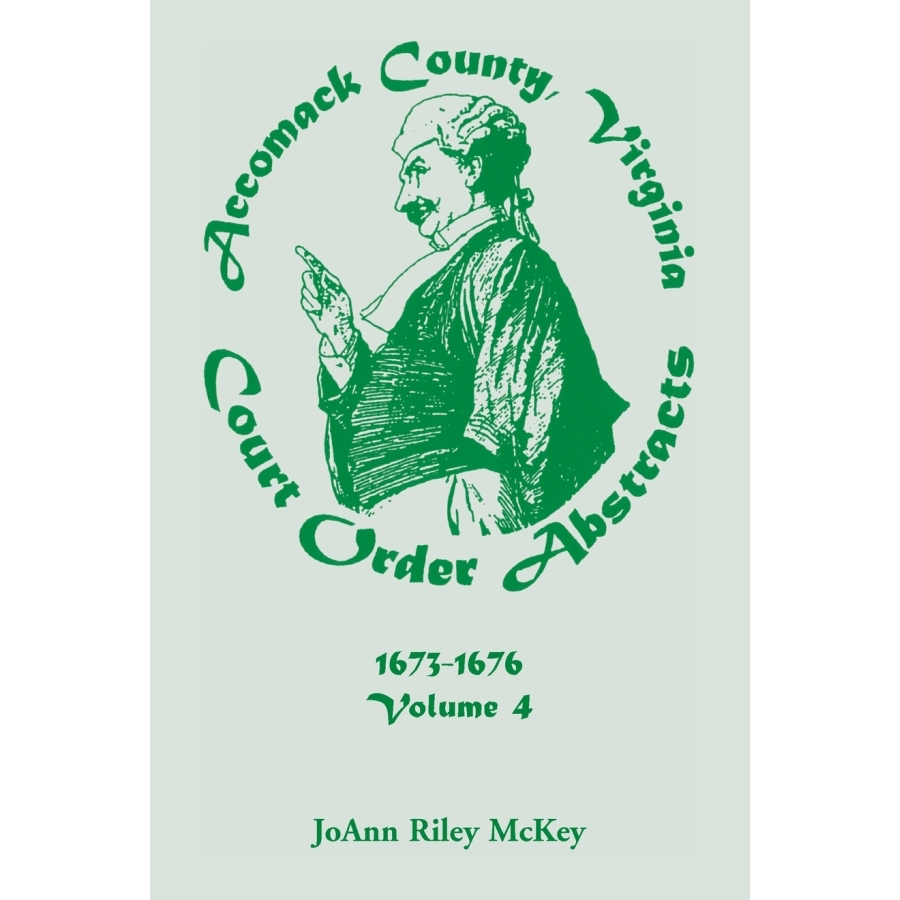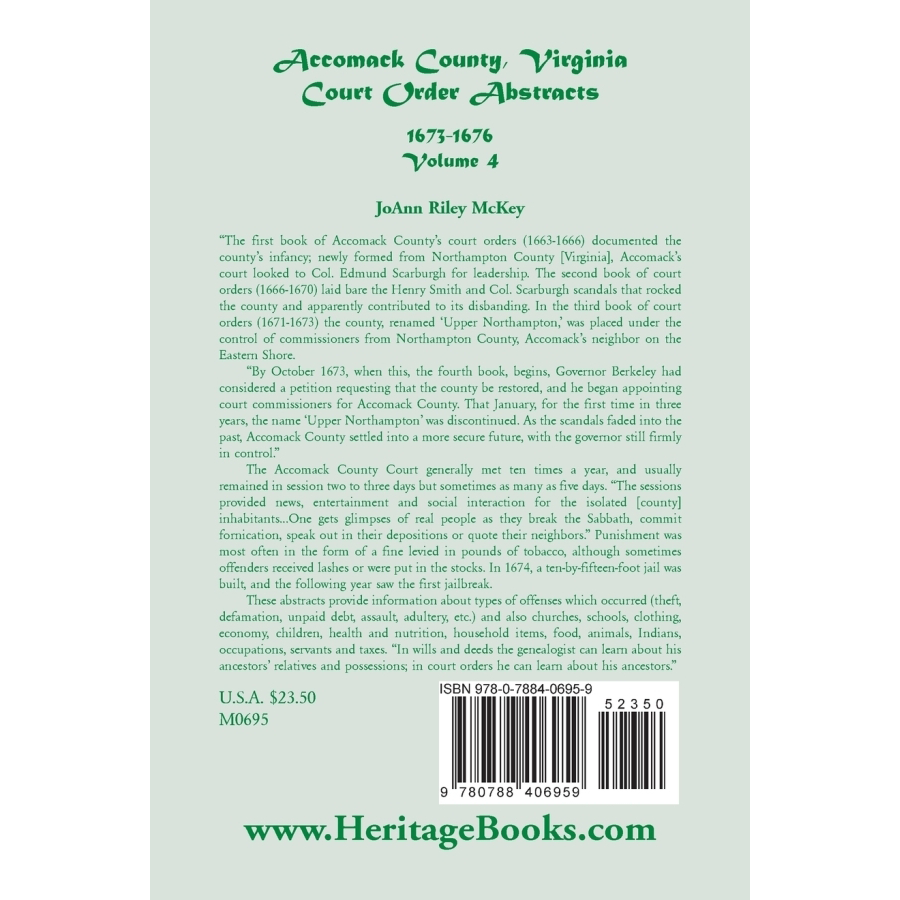Accomack County, Virginia Court Order Abstracts, Volume 4: 1673-1676
Couldn't load pickup availability
"The first book of Accomack County's court orders (1663-1666) documented the county's infancy; newly formed from Northampton County [Virginia], Accomack's court looked to Col. Edmund Scarburgh for leadership. The second book of court orders (1666-1670) laid bare the Henry Smith and Col. Scarburgh scandals that rocked the county and apparently contributed to its disbanding. In the third book of court orders (1671-1673) the county, renamed 'Upper Northampton,' was placed under the control of commissioners from Northampton County, Accomack's neighbor on the Eastern Shore. "By October 1673, when this, the fourth book, begins, Governor Berkeley had considered a petition requesting that the county be restored, and he began appointing court commissioners for Accomack County. That January, for the first time in three years, the name 'Upper Northampton' was discontinued. As the scandals faded into the past, Accomack County settled into a more secure future, with the governor still firmly in control." The Accomack County Court generally met ten times a year, and usually remained in session two to three days but sometimes as many as five days. "The sessions provided news, entertainment and social interaction for the isolated [county] inhabitantsÖOne gets glimpses of real people as they break the Sabbath, commit fornication, speak out in their depositions or quote their neighbors." Punishment was most often in the form of a fine levied in pounds of tobacco, although sometimes offenders received lashes or were put in the stocks. In 1674 a ten-by-fifteen-foot jail was built, and the following year saw the first jailbreak. These abstracts provide information about types of offenses which occurred (theft, defamation, unpaid debt, assault, adultery, etc.) and also churches, schools, clothing, economy, children, health and nutrition, household items, food, animals, Indians, occupations, servants and taxes. "In wills and deeds the genealogist can learn about his ancestors' relatives and possessions; in court orders he can learn about his ancestors."
JoAnn Riley McKey
(1997), 2010, 5.5" x 8.5", paper, index, 216 pp.
ISBN: 9780788406959
101-M0695

